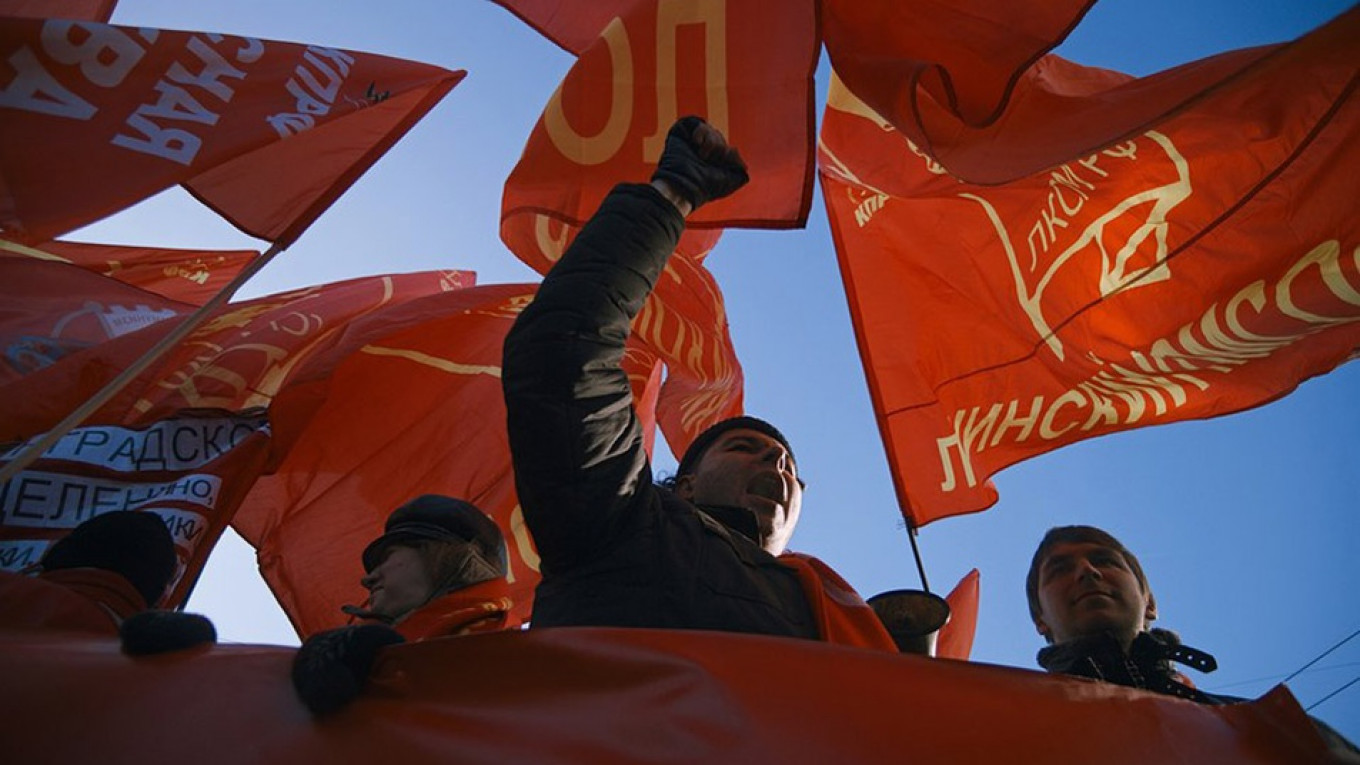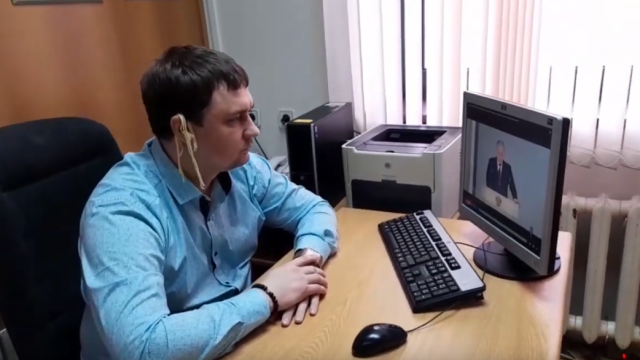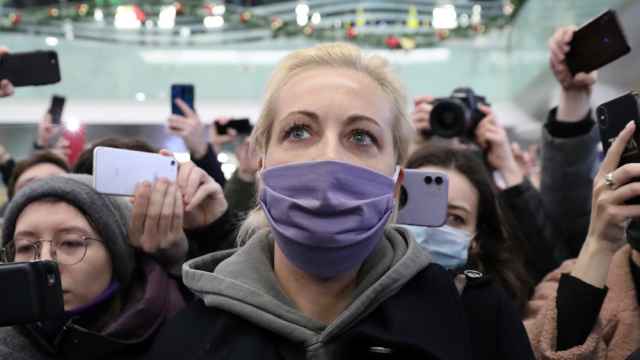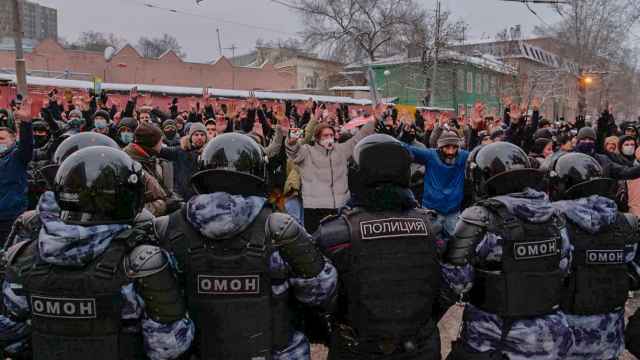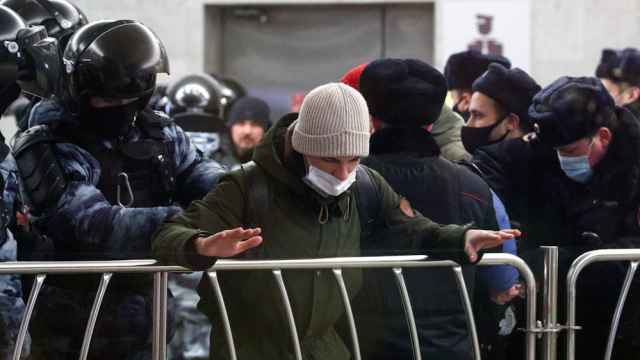A specter is haunting Russia — the specter of Communism. But this time, unlike in Karl Marx’s original formulation, the specter is really dead. We often hear that Russian politics is making an inevitable pivot to the left, and that the political system needs to reinvent itself to find room for a genuinely left-wing party. But all that talk is only preparing everyone for yesterday’s war. The fight is now elsewhere.
Of course, Russians are unhappy with issues, such as the rise in the retirement age. They are expressing their outrage where they can, for example, by supporting Communist Party and far-right LDPR candidates at the recent regional elections. But we should not confuse left-leaning protest with an appetite for socialist revolution.
The success of opposition candidates in September’s regional elections across Russia was much more a vote against the Kremlin-backed ruling party, United Russia, than in favor of the Communists. It wasn’t just that people were angry with the government about its pension reforms; they were angry that the government had revoked a fundamental item in the unwritten Putin-era social contract — do not touch the social benefits system.
Paradoxically, United Russia’s ratings are falling, but the left is not gaining popularity at its expense. According to a Levada Center poll, 37 percent of the voters were ready to vote for United Russia in December 2017, but only 28 percent supported the party in August 2018. And yet support for the left-leaning Communist Party and A Just Russia Party remained the same — 9 percent and 3 percent, respectively. The LDPR’s poll numbers haven’t changed either — they were around 11 percent.
This suggests that we aren’t witnessing the growing demand for a party of the left, but a more general crisis of the party system. In December 2017, 17 percent of respondents said they wouldn’t vote at all, and that number had increased to 22 percent by August 2018. In the most recent poll, a further 7 percent of those who decided to come to the polls said they would invalidate or spoil their ballots.
Trust ratings for political parties in Russia are also extremely low, occupying the 18 position in a list of 19 institutions—only Russia’s largest companies fare worse in public opinion. Of course, this stems in large part from the fact that the genuine party system has long been dead, and what we currently have is a menu where there is nothing interesting for the voter to choose from. This problem won’t be solved by the government deciding to form new pseudo-parties. It is not new parties or ideologies that people want.
The Russian public wants social justice, but its political enthusiasm is dulled by an absence of political and economic competition and, in particular, a lack of new faces.
People want change. In August 2017, Denis Volkov of the Levada Center and I did some research on people’s readiness for change. Forty-two percent supported radical change, while 41 percent were in favor of gradual change. In May 2018, the Levada Center repeated the same question — “What kind of change do you want?” — to the same pool of respondents across Russia. The number of those wanting radical change had shot up to 57 percent, while only 25 percent of the respondents said they wanted to see incremental change.
A closer look reveals that the “radicals” are very unclear about what they actually want, beyond a general craving for fundamental change. People simply want to escape a Bermuda Triangle of inflation, low earnings, and the risks of unemployment. They would be happy for the banner of change to be held aloft by Putin, former finance minister Alexei Kudrin, or Communist Party leader Gennady Zyuganov — or Stalin, for that matter.
Many of these same people voted for Putin in the presidential election earlier this year; however, they voted for him not as such but in the role of Mr. It-Shouldn’t-Get-Worse. For people with low expectations, “not worse” is synonymous with “better.” Yet the public mood has been soured by the recent social initiatives. This is a perfectly rational reaction to a situation where they see the state filling its own coffers while fueling social inequality. If, the reasoning goes, the taxes the government extracts from the people can be used to finance anything, including an impending arms race with the United States, how can the public be expected to trust any state-sponsored project, including the one introducing a new party?
The new grassroots demand for change has been described as populist. It has similarities to what is happening in Europe: left-wing political parties are being displaced by populist movements and leaders who manage to utilize both left-wing and right-wing discourse in their rhetoric.
In Russia, the new craving for change is not clearly articulated. It lacks a leader, organization, and ideological coloring. But it is hard to pin the “populist” label on people who are only demanding a minimal degree of justice from a political system that at best works inefficiently and frequently works to enrich itself by spending the money it collects from the people merely to buy back their loyalty. A political system like this is internally redundant.
But the malady can be cured. A double dose of the medicine of “competition and rotation” can at least help the patient to get over his depression—unless, of course, the aim of the government is to artificially maintain the patient in that condition.
Andrei Kolesnikov is a senior associate and the chair of the Russian Domestic Politics and Political Institutions Program at the Carnegie Moscow Center which translated a version of this article originally published on RBC news site. The views and opinions expressed in opinion pieces do not necessarily reflect the position of The Moscow Times.
A Message from The Moscow Times:
Dear readers,
We are facing unprecedented challenges. Russia's Prosecutor General's Office has designated The Moscow Times as an "undesirable" organization, criminalizing our work and putting our staff at risk of prosecution. This follows our earlier unjust labeling as a "foreign agent."
These actions are direct attempts to silence independent journalism in Russia. The authorities claim our work "discredits the decisions of the Russian leadership." We see things differently: we strive to provide accurate, unbiased reporting on Russia.
We, the journalists of The Moscow Times, refuse to be silenced. But to continue our work, we need your help.
Your support, no matter how small, makes a world of difference. If you can, please support us monthly starting from just $2. It's quick to set up, and every contribution makes a significant impact.
By supporting The Moscow Times, you're defending open, independent journalism in the face of repression. Thank you for standing with us.
Remind me later.



